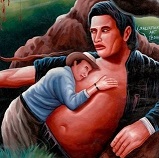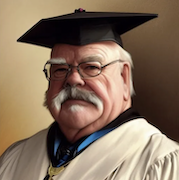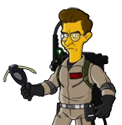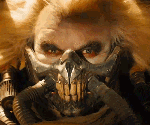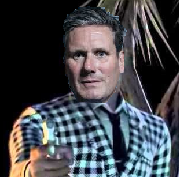|
WarLocke posted:So I rewatched STID today and figured I'd catch up on this thread. I ended up skipping the last 40 pages because it seemed like the whole whitewashing crap would never end. What's crazy is that Cumberbatch actually resembles Joachim, Khan's second-in-command in TWOK. I think it could have worked. JediTalentAgent posted:I agree with this perspective, too. But even keeping Khan as a some rogue (I mean, he did plot to steal the Enterprise in Space Seed, right?) could sort of work. He's out there doing terrorist/piracy-like stuff like stealing Starfleet ships and the like, but from his perspective it's a necessary evil to get his people their future in a future that he literally believes will put them back in prison for being genetically altered. STID might have made Khan too "eeeeeevil" (genocide, really?), but I think we're starting to veer off a little too far to the "he's really not that bad a guy" side. Khan is a power-hungry madman, and though "Space Seed" portrayed him as a benevolent leader during his reign on Earth, it was only because he was satisfied being in charge. He's vain, insecure, and extremely petty. He's basically just a huge diva, but one who is dangerous because he can back his poo poo up. I don't think he's particularly righteous about anything aside from himself being the greatest and that everyone should recognize him as such. I think the overall message/theme of the Khan character is that it doesn't even matter if you ARE the smartest and the strongest, real confidence and emotional stability comes from within and your outlook on life and other people.
|
|
|
|

|
| # ? May 28, 2024 00:20 |
|
WarLocke posted:Didn't Mulgrew say in an interview at some point that she started playing Janeway as losing her marbles intentionally? Janeway has PTSD from the Cardassian War and no counselor to go to.
|
|
|
|
lizardman posted:What's crazy is that Cumberbatch actually resembles Joachim, Khan's second-in-command in TWOK. I think it could have worked. Mostly I just think there's a lot of interesting nature/nurture stuff to be mined in the character and that wasn't really explored in the movie. I probably liked STID more than most here (and certainly more than most in the Star Trek TVIV thread) but I liked it in spite of what they did with Khan, not because of.
|
|
|
|
lizardman posted:What's crazy is that Cumberbatch actually resembles Joachim, Khan's second-in-command in TWOK. I think it could have worked. I still sort of wonder how much of the finished film is what the original script pitch was. I just get the feeling that the film was rushed to get into development and released. There might have been some sort of Terminator Salvation-type of rewrite thing going on, too, once they got Cumberbatch. They realized that Cumberbatch was getting a lot of buzz from just the first season of Sherlock, the second season hadn't aired yet, and they were thinking they needed to move him to a more prominent position in the film to really take advantage of casting him.
|
|
|
|
JediTalentAgent posted:I still sort of wonder how much of the finished film is what the original script pitch was. I just get the feeling that the film was rushed to get into development and released. They had three years of development, which is the really insane part. Orci, Kurtzman and Lindelof announced they were working on a script in 2010 (and then just couldn't get anything done, because Abrams didn't commit to doing Into Darkness until after he was halfway through Super 8). quote:There might have been some sort of Terminator Salvation-type of rewrite thing going on, too, once they got Cumberbatch. They realized that Cumberbatch was getting a lot of buzz from just the first season of Sherlock, the second season hadn't aired yet, and they were thinking they needed to move him to a more prominent position in the film to really take advantage of casting him. I don't think so; they originally had Benicio Del Toro locked down for the part until Paramount lowballed him on their pay offer. So it was always going to be Khan and he was always going to be a primary / lead character.
|
|
|
|
Del Toro's Khan would have been so much scarier than Cumberbatches. I think Cumberbatch is a pretty good actor, but he isn't very good at being visually intimidating. See the Benicio Del Toro/Tommy Lee Jones move The Hunted as an example of how a mentally unstable "super soldier" would be better portrayed.
|
|
|
|
New Khan was great, he looked and acted like a crocodile wearing human skin.
|
|
|
|
Snak posted:Del Toro's Khan would have been so much scarier than Cumberbatches. As mentioned elsewhere (and here, I think) having a PoC taking a giant spaceship and intentionally crashing it into a major city would have been... awkward as hell. The thing I took most from Cumberbatch's performance of Khan is that he's normally cool and in control, but the minute he isn't, he's rabid. Walking down the halls, calm. Fighting some folks who came out from the sites? Brutal. Getting his crew back? Calm. Thinking his crew has been exploded? 
|
|
|
|
Black Bones posted:New Khan was great, he looked and acted like a crocodile wearing human skin. Yeah I think that's just Cumberbatch's face
|
|
|
|
MisterBibs posted:As mentioned elsewhere (and here, I think) having a PoC taking a giant spaceship and intentionally crashing it into a major city would have been... awkward as hell.
|
|
|
|
WeAreTheRomans posted:Yeah I think that's just Cumberbatch's face That's why it's good casting, they found an actual creepy demon person. One who seals Faustian bargains with super-blood and Eastwood downs Klingon heli-carriers and crushes domes barehanded! del Toro is a great actor who would have brought a much more human touch, maybe even sympathetic, but Cumberbatch is hilarious and disturbing. In the brig scene, Khan weeps not for his crew, that sentiment is too soft an emotion for him to feel; he grieves because some pathetic little man has used him. That's the real motivation for him to turn the Vengeance upon the Enterprise - he doesn't think they really are a threat to him, but they have witnessed his brief humiliation. Like Ahab, he would strike the sun if it insulted him. New Khan = best Khan.
|
|
|
|
Black Bones posted:That's why it's good casting, they found an actual creepy demon person. One who seals Faustian bargains with super-blood and Eastwood downs Klingon heli-carriers and crushes domes barehanded! del Toro is a great actor who would have brought a much more human touch, maybe even sympathetic, but Cumberbatch is hilarious and disturbing. Which is why it's kind of annoying they just stuck him back in the freezer. One way to make it less of a cheap Wrath of Khan cash in is to do something different with the character now that he's not dead. There's worse ideas than Star Trek 3: The Search for Khan. You could even some something really Star Trek-y like Khan goes back in time try to stop him from ever being defeated and frozen. The enterprise has to follow him back and do First Contact/Future's End/The Voyage Home/City on the Edge of Forever. Then you can put some sweet Eugenic's Wars blockbuster action scenes, that if they're smart will look like the opening scenes of Terminator 2: Judgement Day, because, it's me, I'm the guy who never gets sick of that. In anything.
|
|
|
|
Black Bones posted:In the brig scene, Khan weeps not for his crew, that sentiment is too soft an emotion for him to feel; he grieves because some pathetic little man has used him. That's the real motivation for him to turn the Vengeance upon the Enterprise - he doesn't think they really are a threat to him, but they have witnessed his brief humiliation. Like Ahab, he would strike the sun if it insulted him. See, and I realize we're heading to very subjective territory, but I just didn't buy this while watching. Cumberbatch struck me way too calculating and sincere to be the narcissist he'd been portrayed as previously. Some of the petty revenge actions the script calls for him to do actually seem at odds with Cumberbatch's portrayal. I think, in either incarnation, Khan would weep for his followers; MontalKhan because those people worshipped him, CumberKhan more out of a sense of justice being violated.
|
|
|
|
Snak posted:Which is why it's kind of annoying they just stuck him back in the freezer. One way to make it less of a cheap Wrath of Khan cash in is to do something different with the character now that he's not dead. There's worse ideas than Star Trek 3: The Search for Khan. You could even some something really Star Trek-y like Khan goes back in time try to stop him from ever being defeated and frozen. The enterprise has to follow him back and do First Contact/Future's End/The Voyage Home/City on the Edge of Forever. That's a cool character and all, and I liked Benedict Drangusbatchin the film, but why the heck did he have to be Khan? Money obviously. He's a neat character but he's just not Khan. He's not just different liek hwo the rest of the crew is different but still recognizably who they were in the old shows. Snundercratch Khan i just some other dude entirely. Old Khan is arrogant and sneaky and tricky, but he has a perverse sense of not relaly honor, but sportsmanship. He's not petty. At the end of Space seed after he gets smacked down and sent to colonize a new world he isn't bitter and vengeful at Kirk over that. He was stoked about the challenge and adventure. He only got mad at Kirk because later it turned out Kirk had picked a poo poo place to drop them off and his lady died along with almost all his friends. The only real traits Cummerman has in common with old Khan is they're both real sharp and arrogance, which, not to be racist against superhuman but we all know it's true, sueprhumans are arrogant jerks and they like to steal (spaceships). Old Khan is a passionate larger than life charismatic tyrant. Cabbagepatch Khan is a cold calculating mastermind with a short fuse. It's just like if you made a movie about Teddy Roosevelt but the character was acted and written like Nixon. Nixon makes a greta villain too, but he's a totally different character. (USER WAS PUT ON PROBATION FOR THIS POST)
|
|
|
|
Yes he's not "Khan", but who gives a poo poo. He's now a character that exists in the new continuity that they devoted most of a film to. It's a reboot and it's more or less okay for things to be totally different. What's not okay is if everything just turns out to be *wink* remember this from the original?
|
|
|
|
Snak posted:Which is why it's kind of annoying they just stuck him back in the freezer. One way to make it less of a cheap Wrath of Khan cash in is to do something different with the character now that he's not dead. There's worse ideas than Star Trek 3: The Search for Khan. You could even some something really Star Trek-y like Khan goes back in time try to stop him from ever being defeated and frozen. The enterprise has to follow him back and do First Contact/Future's End/The Voyage Home/City on the Edge of Forever. The Quest for Khan would be a really good setup for the next film actually. Khan ends STID with a grudging respect for Kirk, then takes his crew and the Big Evil Ship away instead of crashing it into a city. Kirk lets him go out of a combination of 'make your own destiny', I-owe-you-one and justifiably not trusting Starfleet right about then. Then the next film has the Enterprise being sent into unknown space to find Khan, and following the trail finds the awful effects of species and cultures being exploited by someone not following the Prime Directive, they stop Khan doing some scheme and he just about escapes swearing vengeance. Then you've set up exploring strange new worlds as a concept in the nu-trek verse, given Kirk and Khan enough for a real Wrath of Khan next film and given the Enterprise crew an arc of personal/moral responsibility being important and making them the natural choice for a 5 year journey.
|
|
|
|
Khan's inclusion to the film, including his entire reveal, just felt like a smug wink. I still think replacing Khan with a young Chang would have worked better too and been a bit more of a 'whoa' moment for people in the long run. One of the reasons I'm sort of in love with that idea is that he's a character that was pretty interesting in Undiscovered Country and Cumberbatch could probably play him as a cosmetically altered human version of the character pretty easily. Add into that we've already established humans are 'weaker' in general than some other alien species so Harrison appearing somewhat superhuman is just him being more a fit Klingon. Again, I sort of like the idea that while Marcus is trying to run a secret plot to start a war with the Klingons, his operation's already been infiltrated and sabotaged by the Klingons. He's unknowingly going to be handing the Klingons a victory with his efforts.
|
|
|
|
Snak posted:Yes he's not "Khan", but who gives a poo poo. He's now a character that exists in the new continuity that they devoted most of a film to. It's a reboot and it's more or less okay for things to be totally different. What's not okay is if everything just turns out to be *wink* remember this from the original? I get this in concept, but dammit, Khan is my favorite Star Trek character. We've seen him in action exactly twice, the last time being 30 years ago. He isn't Batman or James Bond where we've-seen-him-so-many-times-let's-see-different-versions-of-him. Also, this may be a continuity reboot (of sorts), but I don't feel like this is a reactionary or subversive "reimagining" of the series (the "this isn't your father's Star Trek" talk in the advertising not withstanding). It seems to be trying hard to stay "true" to the series, or at least how it sees it, which leads to certain expectations to how the characters will be portrayed (and have been portrayed, really--at this point Khan is easily the major character with the most wildly divergent portrayal). This kind of reminds me of Alien 3 where its handling of prior characters and elements of the series isn't really a valid criticism in any technical sense, but.... man, did it have to take a huge poo poo on some of the things I liked and enjoyed from the series? I don't wanna keep bringing it up because in the end it's not that deep, but it's just annoying and unsatisfying and just makes me think "WTF?" On a lighter note, I wrote this crazy review on Netflix that sort of helped illustrate my insane fanboy panty-twisting feelings regarding STID: quote:So a friend tells you he's learned voodoo magic that can bring back the dead. You tell him, "Look, whatever you do, don't bring Grandma back from the dead. She lived a long and meaningful life and she deserves her peace." Your friend promises you he won't do that, and you forget about it after a while.
|
|
|
|
JediTalentAgent posted:Khan's inclusion to the film, including his entire reveal, just felt like a smug wink. I still think replacing Khan with a young Chang would have worked better too and been a bit more of a 'whoa' moment for people in the long run. If the only problem you have is the character's name, then it's not a real problem, is it? What you're describing is exactly what happens in the film.
|
|
|
|
JediTalentAgent posted:Khan's inclusion to the film, including his entire reveal, just felt like a smug wink. I still think replacing Khan with a young Chang would have worked better too and been a bit more of a 'whoa' moment for people in the long run. But one of the main thrusts of the film was that neo-con warhawks trying to start to start wars with rival powers is a bad thing? Having the Klingons (i.e. the Reds, or al-qaeda or whoever) be so intrinsically terrible and war-like that in lieu of a war starting on its own they try to trick the 'better side' into starting one is pretty racist and plays straight into the awful world-view of the film's antagonist(and the whole resurgent reactionary wing of Starfleet by extension). The film veers a bit close to 'Bush did 9/11' for my liking but it at least acknowledges Starfleet's problems aren't entirely the result of the terrible Other.
|
|
|
|
Vitamin P posted:The Quest for Khan would be a really good setup for the next film actually. Khan ends STID with a grudging respect for Kirk, then takes his crew and the Big Evil Ship away instead of crashing it into a city. Kirk lets him go out of a combination of 'make your own destiny', I-owe-you-one and justifiably not trusting Starfleet right about then. Then Khan rips off his mask to reveal that he is actually Janeway. JediTalentAgent posted:Khan's inclusion to the film, including his entire reveal, just felt like a smug wink. This is the worst thing about the movie. It will only be redeemed if Khan is brought back for the third movie and is treated as a real character. lizardman posted:I get this in concept, but dammit, Khan is my favorite Star Trek character. We've seen him in action exactly twice, the last time being 30 years ago. He isn't Batman or James Bond where we've-seen-him-so-many-times-let's-see-different-versions-of-him. quote:Also, this may be a continuity reboot (of sorts), but I don't feel like this is a reactionary or subversive "reimagining" of the series (the "this isn't your father's Star Trek" talk in the advertising not withstanding). It seems to be trying hard to stay "true" to the series, or at least how it sees it, which leads to certain expectations to how the characters will be portrayed (and have been portrayed, really--at this point Khan is easily the major character with the most wildly divergent portrayal). quote:This kind of reminds me of Alien 3 where its handling of prior characters and elements of the series isn't really a valid criticism in any technical sense, but.... man, did it have to take a huge poo poo on some of the things I liked and enjoyed from the series? I mean, I still agree with you that Khan being in STID is totally lame and dumb, all the film's other flaws aside. That review is pretty funny. I'm not trying to antagonize you, I swear... edit: A Steampunk Gent posted:But one of the main thrusts of the film was that neo-con warhawks trying to start to start wars with rival powers is a bad thing? Having the Klingons (i.e. the Reds, or al-qaeda or whoever) be so intrinsically terrible and war-like that in lieu of a war starting on its own they try to trick the 'better side' into starting one is pretty racist and plays straight into the awful world-view of the film's antagonist(and the whole resurgent reactionary wing of Starfleet by extension). The film veers a bit close to 'Bush did 9/11' for my liking but it at least acknowledges Starfleet's problems aren't entirely the result of the terrible Other. Snak fucked around with this message at 21:53 on Jun 30, 2014 |
|
|
|
The Klingons are supposed to be an important aspect of the plot, but nothing is really done with them and Khan isn't working for anyone but himself. The same film with the idea that Starfleet thinking they're going to outsmart the Klingons and having the Khan-figure character secretly being aligned with the Klingons I think sort of changes the feel of the film. You can start playing around with espionage and political elements going on during a cold war setting where both sides are still preparing for worst-case full on war scenarios, doing sabotage, cointel, stealing military secrets, etc. That's sort of treading into fanfic territory though, but But I still think the entire Khan thing wasn't needed anyway. The Marcus conspiracy to start a war had enough room where we didn't need a Khan, 70+ frozen bodies, supertorpedos and we'd be able to maybe focus more on the threat of full on Klingon War a bit and work towards pulling them back a bit more to their TOS TV/Movies-era depictions than the ever-increasingly space vikings of TNG-Voyager. edit: I like Snak's "Klingon Marcus" thoughts and how that could have just as easily worked too. In any case, trying to mix political action and modern Star Trek movies would probably be compared a lot to Undiscovered Country, but no more than Into Darkness being compared to TWoK JediTalentAgent fucked around with this message at 21:59 on Jun 30, 2014 |
|
|
|
Snak posted:
That is veering into 'entirely different film which we didn't see' territory though. As it is, Khan functions as a representation of our own terrible history which Starfleet have revisited in their paranoid fear and of the threat they face to the Federation's ~evovled way of life~ if left unchallenged and changing that would be drastically altering what was actually going on in the film.
|
|
|
|
Exactly; it's important that it's Khan solely because Khan represents the world the Federation supposedly left behind. Hence, the scene in Marcus' office where he displays the row of models showing the progression of the different space-ships up to the present. The standard narrative of Star Trek is that, after WWIII, everyone got together and started over fresh. This film shows (more accurately) that WWIII did not trigger a massive radical change at all, but a smooth transition into the next looming catastrophe. It's important that Marcus was inspired by the events of the previous film. He saw the Narada, the incarnation of Star Trek: Nemesis, and said 'we need to become that'. History is still repeating itself. The point here is that Khan is a victim as much as anyone else. Into Darkness has a very basic biblical story where Khan is an angel who rebels against God. God is not the good guy in Paradise Lost - it's Lucifer.
|
|
|
|
Do you really need to be so abrasive in discussions all the time? It's really not very Christian. I don't really disagree with anything you've said, I merely stated Khan is emblematic of Starfleet's deepening plunge into autocracy and militarism in that they wanted to win the next war so bad they basically dug up Napoleon, magnificent tyrant and conquerer of nations, and told him to get to it. I completely agree he's not the cause of it and Starfleet's full of the same old 20th century power structures, implicit ideologies etc etc which are the root cause, Khan just illustrates how far they've gone that it honestly seems like a Good idea to Marcus and co to dig him up and give him the keys.
|
|
|
|
I was agreeing with you.
|
|
|
|
Ah that's terrible reading comprehension on my part then, I honestly thought you were being sarcastic, sorry!
|
|
|
|
SuperMechagodzilla posted:It's important that Marcus was inspired by the events of the previous film. He saw the Narada, the incarnation of Star Trek: Nemesis, and said 'we need to become that'. History is still repeating itself. You know I love you, SMG, but I've never bought this whole Abrams-Star-Trek-movies-as-meta-commentary-on-past-Star-Trek-works thing you've been bringing up ever since Trek '09 came out, and honestly it comes across kind of troll-ish (especially since early on you'd routinely drop 'TWOK is the only one worth watching'-type remarks repeatedly as if hoping a butthurt fan would take the bait). I don't see why the "big bad black spiky warship" being presented as a terrible villainous construct in Abrams' movies is supposed to represent Nemesis and other Trek movies as a whole when the "big bad black spiky warship" in that movie was also a terrible villainous construct; it seems much more reasonable to chalk it up to "big, black, and spiky" being a simple and effective way to evoke evil in a vessel's appearance. Abrams' movies and Nemesis are more similar than they are different. They're both rather self-conscious efforts to compensate for the franchise being seen as stuffy and uncool (in fairness, Star Trek often IS stuffy and uncool). Abrams' efforts are more successful at it, partly out of more competence, partly because of the old guard being too, well, old and too far "in" to be able to pull it off. Basically, Nemesis is a middle-aged guy wearing a leather jacket and sunglasses, Abrams' Trek movies are an attractive young guy wearing a Star Trek uniform to a costume party. lizardman fucked around with this message at 23:53 on Jul 1, 2014 |
|
|
|
lizardman posted:
Maybe because it literally comes from the future?
|
|
|
|
The Narada is a gaggle of gritty Borg-enhanced Romulans getting pointless revenge. It represents 'the bad future' - TNG, and specifically Nemesis. It's all sickly neon green. The dark ship in this film comes from the (retconned) past. It represents DS9 and Enterprise, specifically those parts that involve Section 31 and other black ops that were 'working in the shadows'. It's all black and dark blue, accordingly. By fixing the past and future, we're ready for a clean reboot.
|
|
|
|
SuperMechagodzilla posted:The Narada is a gaggle of gritty Borg-enhanced Romulans getting pointless revenge. It represents 'the bad future' - TNG, and specifically Nemesis. It's all sickly neon green. But why does repeating prior tropes make it a metacommentary on the works that used those same tropes? I just need something more in order to make that leap ('computer parts' noting that Nero's ship actually originates in the post-Nemesis TNG-timeline is a step in that direction, and playing devil's advocate with myself I'll give you that in certain shots the Vengeance resembles the Enterprise-E, but those touches aren't enough for me). For me to really buy into this the Abrams films would have to be substantially different from the prior works, but to me they're not; not nearly enough, anyway, to really throw those elements into stark relief. The cast is younger and livelier, the Enterprise interiors are BRIGHT... but that's really about it. If the problem with Star Trek was that it got too dark and lost its optimism for the future, where is the rebuttal in making dark movies that only pay lip-service to the 'optimistic future' Star Trek represented? The world of Abrams' Treks often looks cold and industrial, far from any kind of paradise (and before anyone mentions the timeline being corrupted, the Kelvin interiors already looked like something out of the Alien universe at the beginning of Abrams' first movie). Even the super-bright Enterprise interiors feel rather sterile. If the problem with Star Trek was that it had too many villains wanting pointless revenge, where's the rebuttal in having another (TWO!) villains wanting pointless revenge? If the problem with Star Trek was its willingness to have corrupt warmongering conspiracies within its ideal society, where's the rebuttal in having another warmongering conspiracy be the central storyline? What is it about Abrams' movies that qualifies these elements as criticism and not just, you know, business as usual? Because they look like they're trying to be the same movie to me. There was a scene in the cartoon Daria where the ditzy cheerleader is presenting her painting to her art teacher. The painting is called "Don't do drugs". The painting merely consists of a pile of cocaine, marijuana joints, and other drugs and paraphrenelia lying about, and her art teacher tells her "I see the drugs, but I don't see the 'don't'." That's kind of how I feel with this reading of the Abrams Trek movies.
|
|
|
|
quote:The world of Abrams' Treks often looks cold and industrial, far from any kind of paradise (and before anyone mentions the timeline being corrupted, the Kelvin interiors already looked like something out of the Alien universe at the beginning of Abrams' first movie). Even the super-bright Enterprise interiors feel rather sterile.
|
|
|
|
As someone who likes both reboot films, and grew up watching Trek and likes just about all of it, the biggest gripe I have is the treatment of Vulcans. Pre-Star Trek: Enterprise, Vulcans were a race that served as a thought experiment of what humans mightbe like if they were rational actors. Often human characters, like Kirk or Bones were confused by Vulcan logic, but it was often shown that Vulcan logic was pretty sound and generally good, but sometimes made Vulcans hard to relate to. Starting in Enterprise and carrying into the reboot films, Vulcans have been portrayed as dicks, and Vulcan logic as a "holier than thou" fallacy. In ENT and reboot, Vuclans are the ones who need to learn from humanity to not be worthless. It's dumb because in the original/TNG/EVEN VOYAGER, Vulcans were almost inspirational in their ability to tackle daunting tasks. And they weren't infallable. The original message was that the best was somewhere inbetween: the sweet spot between logic and emotion. ENT and reboots seem t be saying "oh those backwards, silly, Vulcans, if they only learn to beat the poo poo out of their enemies they will finally get something done!" It's really sad, not from some "canon" perspective, but because Vulcans as a thought experiment lose all of their value if they are always wrong. It's anti-intellectualism, which is pretty anti-Trek, to be honest. In TOS, when Spock learned something from Kirk, it had weight, because Spock was often right about things. In the reboot films, Spock is never right unless he's angry. All of the Vulcans are dicks, and Spock is right about this when he's a kid, when he's turning down the honors bestowed upon him by the Vulcan school or whatever, Spock is only ever right when he's angry, never when he's logical. It's insulting to the ideal of logic. There is this artificial antagonism created between logic and emotion, where emotion MUST be illogical, and logic MUST offend emotion. Notice how they never present situations where the logical thing is to honor people's feelings so that things don't spiral out of control. No, it's always "logic dictates that someone should die because it's best for everyone" and then Kirk is like "well I don't accept that, no matter how logical it is [finds another solution] TAKE THAT LOGIC" and then everyone has learned the valuable lession that blind emotion trumps logic every time because logic is cold and unfeeling. Like who writes this poo poo.
|
|
|
|
Snak posted:As someone who likes both reboot films, and grew up watching Trek and likes just about all of it, the biggest gripe I have is the treatment of Vulcans. Pre-Star Trek: Enterprise, Vulcans were a race that served as a thought experiment of what humans mightbe like if they were rational actors. Often human characters, like Kirk or Bones were confused by Vulcan logic, but it was often shown that Vulcan logic was pretty sound and generally good, but sometimes made Vulcans hard to relate to. Starting in Enterprise and carrying into the reboot films, Vulcans have been portrayed as dicks, and Vulcan logic as a "holier than thou" fallacy. In ENT and reboot, Vuclans are the ones who need to learn from humanity to not be worthless. It's dumb because in the original/TNG/EVEN VOYAGER, Vulcans were almost inspirational in their ability to tackle daunting tasks. And they weren't infallable. The original message was that the best was somewhere inbetween: the sweet spot between logic and emotion. ENT and reboots seem t be saying "oh those backwards, silly, Vulcans, if they only learn to beat the poo poo out of their enemies they will finally get something done!" Haha, That's a good point. Great post.
|
|
|
|
Probably not canon at all, but I think one of the Trek novels had Spock visiting a Vulcan acquaintance who treated their pursuit of logic as only a sort of social/public affair. Behind closed doors and in the privacy of his own home, he was slightly more hedonistic.
|
|
|
|
JediTalentAgent posted:Probably not canon at all, but I think one of the Trek novels had Spock visiting a Vulcan acquaintance who treated their pursuit of logic as only a sort of social/public affair. Behind closed doors and in the privacy of his own home, he was slightly more hedonistic. That's not even surprising. Vulcans follow logical courses of action not because they make them the happiest, but because they recognize that they are generally the greatest good the most people. Vulcans are the cult of Kant and his categorical imperative. Like literally. It's pretty clear that Vulcans suppress their emotions enough that they don't effect their actions, but it's pretty clear from the beginning that Vulcan do HAVE emotions. In the beginning of Into Darkness, Kirk gets mad at Spock because Spock reported him for violating the prime directive. The scene where Kirk explains this to Spock is great. It's also really at odds with how TOS Kirk and Spock would behave. I can't really say that it's out of character because these are different, younger, characters. But that aside, a much more Kirk thing to do would not have been to get mad that he was on trail for breaking the rules, but to argue that his bending of the rules was justified. I also like that their mission to stop the volcano from wiping out a primitive race was apparently NOT in violation of the prime directive, since that is a big "gently caress YOU" to the worst TNG episode about the prime directive.
|
|
|
|
lizardman posted:If the problem with Star Trek was that it got too dark and lost its optimism for the future, where is the rebuttal in making dark movies that only pay lip-service to the 'optimistic future' Star Trek represented? The world of Abrams' Treks often looks cold and industrial, far from any kind of paradise (and before anyone mentions the timeline being corrupted, the Kelvin interiors already looked like something out of the Alien universe at the beginning of Abrams' first movie). Even the super-bright Enterprise interiors feel rather sterile. The films have an obvious ambivalence towards the ipod-sleek interiors of the Enterprise. Things like the teleportation and the instant elevators are surreal and disorienting. Planets vanish in a few minutes, a mind-meld bombards you with imagery, and so-forth. Scotty gets trapped in a tube in a Modern Times reference. Into Darkness is unfortunately short on this stuff, but features things like the surveillance 'scanner data' revealing an infinite-resolution 3D diorama of a public street. The optimism doesn't stem from this technology alone but how the characters make use of it, and create a home in it. This new take on TOS is then juxtaposed with later series to examine exactly what would happen if this technology is misused. Old Spock is a prophet from the future, and the Narada is the doom he warns of. Nero is driven insane by the exact same bizarre nightmare stuff that the Enterprise crew live every day. Kirk's hands inflate like balloons. However, simply restoring TOS is not enough. Into Darkness attacks the ideological failures that have haunted Star Trek from the beginning. Abrams is saying that the cynicism of DS9 is accurate, but then goes further to say accurate cynicism is not enough. Optimism is something you have to fight for.
|
|
|
|
The idea of society as something fragile and difficult to build or protect is completely at odds with Star Trek's bizarre happy spacefuture where everything is fine except for those Reptilian Jews. The latter is quite clearly an ideological fantasy. The reboot-crew are facing 'old enemies' in the form of not just characters you recognise but problems that never really went away in the first place. Khan was a warmongering rear end in a top hat who only wanted to protect his 'family', and he was locked away. A couple of years later, a human decides to unfreeze him. Maybe we never really got rid of the problem.
|
|
|
|
SuperMechagodzilla posted:The films have an obvious ambivalence towards the ipod-sleek interiors of the Enterprise. Things like the teleportation and the instant elevators are surreal and disorienting. Planets vanish in a few minutes, a mind-meld bombards you with imagery, and so-forth. Scotty gets trapped in a tube in a Modern Times reference. Into Darkness is unfortunately short on this stuff, but features things like the surveillance 'scanner data' revealing an infinite-resolution 3D diorama of a public street. This is a fine interpretation, but I don't see how this is a criticism of Star Trek Nemesis (and the other TNG-era movies, I gather) as a film, though, which sounded like your initial reading. Nemesis used the "big black terrible spiky ship of doom" as a representation of a corrupt ideology and technology just as Abrams' Trek '09 did - the deadly radiation that is Shinzon's superweapon also apparently ran the whole ship, so it stands to reason the technology could be harnessed for good in someone else's hands - and Shinzon himself is literally Picard if he didn't have his optimistic ideals and aspirations, and the film puts Shinzon in his big black spiky ship shrouded in greenish darkness and friends that look like Nosferatu to contrast with the Enterprise and its relative coziness and lightness to illustrate that nihilism & cynicism = bad and optimism & faith = good. We can argue how well executed Nemesis is, but thematically it has its heart in the right place, and moreover seems right in line with Abrams' Trek (honestly, the 2009 film feels to me like they watched Nemesis and thought, "Hmm, let's take another crack at that one"). For the Narada to represent TNG films would mean they would have to endorse or idealize such a vessel (and a worldview that would create it), but I couldn't possibly agree with that. Giving you as much of the benefit of the doubt as I can, Nemesis does try to present the Scimmitar (and the Borg and such) as 'cool' while the Narada is an amorphous spiky blob thing that's hard to appreciate on any level, but... eh? SuperMechagodzilla posted:However, simply restoring TOS is not enough. Into Darkness attacks the ideological failures that have haunted Star Trek from the beginning. Abrams is saying that the cynicism of DS9 is accurate, but then goes further to say accurate cynicism is not enough. Optimism is something you have to fight for. I'm at a disadvantage here as I tuned out of Star Trek on TV right around the 'darker years' of DS9 (largely because the direction and production of the series had gotten so dull that it couldn't even make a galactic war feel all that arresting) so I'm not sure how all that played out. I can't imagine, though, that any Star Trek would take any stance other than "war is a terrible thing". Is it that Star Trek should never have depicted a war in the first place?
|
|
|
|

|
| # ? May 28, 2024 00:20 |
|
lizardman posted:
You're right in that it wasn't half as "dark" as a lot of fans act like it was. I also wonder why people think in a universe with almost limitless energy sources and the ability to make anything out of thin air would be more realistic if it had wars about territory and trades routes.
|
|
|




